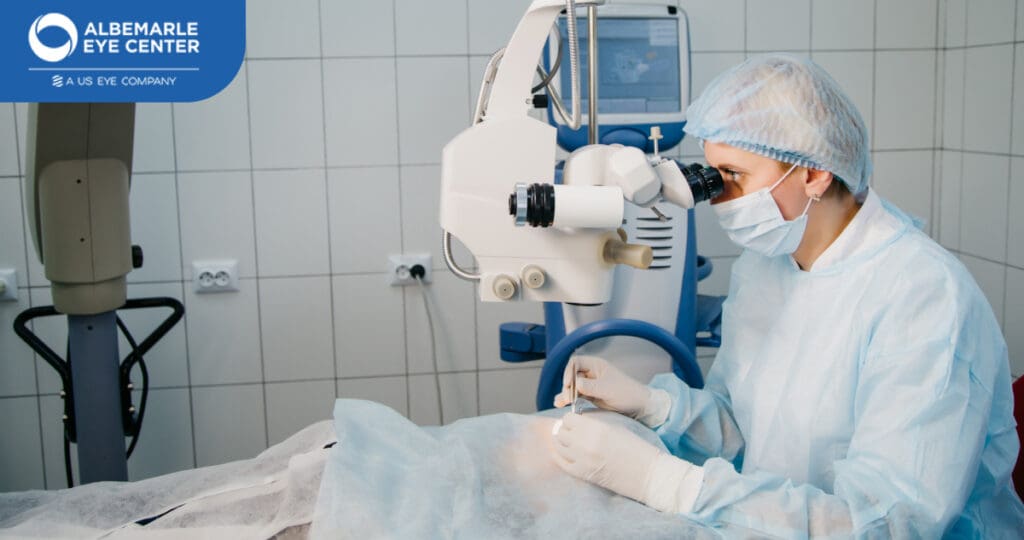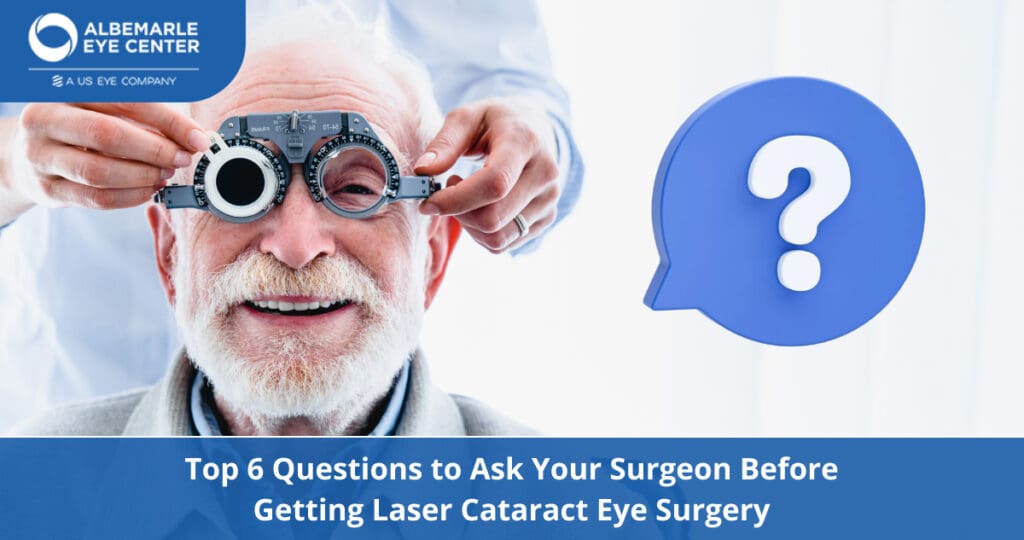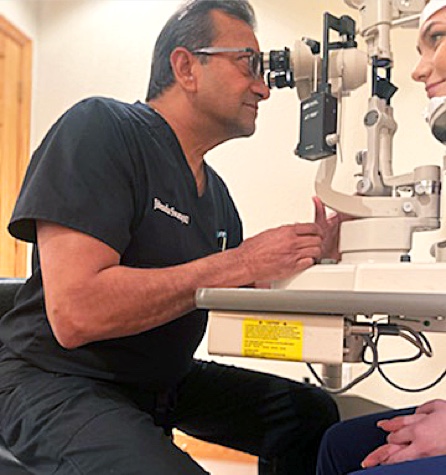Reviewed By: Dr. Jitendra Swarup
Your preoperative consultation is the perfect opportunity for an open and informative discussion with your surgeon. As any patient would, you want to be well-prepared and confident about your upcoming laser cataract eye surgery. Your vision is precious, and by educating yourself and asking the right questions, you can alleviate any concerns or uncertainties you may have.
If you’re lost on where to begin, read these most-asked and most important questions to ask your surgeon before laser cataract eye surgery.
How many cataract surgeries have you performed?
For example, those doing over 1,000 procedures a year have just a 0.48% complication rate, compared to 2.15% for those with less experience. While the exact number of surgeries isn’t as important, the range is.
If you’re concerned about your surgeon’s experience, it’s 100% okay to ask. Most surgeons want you to feel comfortable and confident in their skills. Surgeons who perform more surgeries tend to have lower complication rates.
Newer surgeons may have done 200-300 surgeries, which is enough for routine laser cataract eye surgery. However, the skill gap between someone with 350 surgeries and one with 5,000 is much broader than between those with 500 or 1,000. Rest assured, more experienced surgeons generally have the skills to handle complications and achieve the best results.
Could you describe the laser cataract eye surgery procedure?
Laser cataract eye surgery, or femtosecond laser-assisted cataract surgery (FLACS), is an advanced, precise technique that enhances the traditional cataract procedure. Instead of using a blade to make incisions, a femtosecond laser creates ultra-precise cuts in the cornea and softens the cataract for easier removal. This level of precision allows for better control, improved outcomes, and potentially faster recovery times. The laser also lets surgeons treat astigmatism during the procedure, improving post-surgery vision quality.
During the surgery, the femtosecond laser makes tiny, accurate incisions and breaks up the cloudy lens. The surgeon then removes the cataract and implants an artificial lens tailored to the patient’s vision needs. The entire process typically takes 5 to 10 minutes per eye, with patients spending about two to three hours at the surgical center overall.
After your laser treatment for cataract removal, you’ll need to follow a simple post-operative care routine, including using prescribed eye drops and attending follow-up visits to ensure proper healing.
What are the benefits and risks of cataract surgery?
Cataract surgery offers many benefits, with the main one being restored vision. After the cloudy lens is replaced with a clear artificial lens, most people experience significant improvements in their eyesight, often seeing more clearly and with better color contrast. This can make everyday tasks like reading, driving, and watching TV much easier. The procedure is quick and typically safe, and most people recover fast with minimal discomfort.
Like any surgery, there are some risks. While rare, complications can include infection, bleeding, or issues with the new lens. In some cases, the retina or other parts of the eye could be affected. There’s also a chance the new lens may need adjustment. However, these risks are generally low, especially with an experienced surgeon. Overall, the benefits of improved vision usually far outweigh the potential risks for most people.
What type of lens do you recommend, and how many surgeries have you done with that lens?
When choosing a lens for laser cataract removal, it really depends on your specific needs and lifestyle. Some people prefer a standard mono-focal lens, which improves distance vision but may still need reading glasses. Others might opt for multifocal or accommodating lenses that can help with both near and far vision, reducing the need for glasses altogether.
Your doctor will recommend a lens based on what you value most—whether it’s sharp distance vision, the ability to read without glasses, or something in between. As for experience, your doctor should have performed hundreds of surgeries using these different lenses, with proven results for many different patient scenarios.

Can perfect vision be guaranteed after surgery?
While laser cataract removal is incredibly effective, and most people see a great improvement in their vision, perfect vision cannot be guaranteed. The surgery is very successful in restoring clear eyesight, but factors like your eye health, age, and any other underlying conditions can affect the final result.
In many cases, people achieve 20/20 vision or close to it, but some may still need glasses for certain tasks, like reading. Having realistic expectations is important—while the goal is to improve vision as much as possible, the outcome can vary from person to person. That said, most people are thrilled with the results and find enhancing their quality of life worth it.
Who will conduct post-operative follow-up exams?
Post-operative exams are essential to ensure proper healing and monitor your progress. These exams are typically conducted by your surgeon or their assistant, who will check your vision and healing progress and address any concerns or questions you may have.
Need more reasons to get laser cataract surgery? Read Albemarle Eye Center’s top ten.
Book Your Cataract Consultation with Albemarle
Remember, your surgeon is there to provide guidance and address any concerns you may have. Asking these questions will help you make informed decisions and feel more confident about your laser cataract eye surgery.
Got more questions? Albemarle Eye Center, an advanced laser and cataract center in five locations in North Carolina, has decades worth of experience in cataract surgery and has performed hundreds of surgeries with the safest and latest femtosecond laser technology. For example, Dr. Jitendra Swarup has been performing cataract surgeries since 1996 and has been involved in numerous clinical trials and research studies. Dr. Sean W. Smolenyak has been managing eye diseases and cataract surgeries for over 20 years. Dr. Mitrev has a strong background in teaching Ophthalmology residents and medical students about glaucoma and cataract surgery.
Book your cataract consultation with us today.
**The information offered in this blog is not intended to substitute expert medical advice. Always seek a qualified healthcare professional for any questions or concerns you may have regarding your specific medical condition.**



















